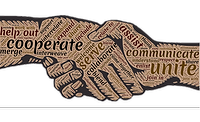Advance planning and preparedness are well-known cornerstones of the security profession. The same skills should be applied to how you advance your career. Knowing how to make a good first impression is key. It should be at the top of every security professional’s readiness checklist.
There will be many occasions across your career that require you to be effective at this. It might be a call from a recruiter that catches you off-guard, or a formal interview process for a new job. Networking and impromptu meetings at business events often catch unprepared job seekers off-guard.
You are the product in each of these circumstances. You have control over whether you set the interest level for future interactions. You need to be prepared to quickly engage.
The first question in many interviews is usually a very general one. They often want you to briefly tell them about yourself in a succinct and clear way. These initial inquiries are designed to be vague. Their goal is to weed out those who are not clear about their future.
Common questions hiring teams use to evaluate your advancement potential include the ubiquitous “tell me about yourself.” They will likely ask what you do in your current position and why you are looking to make a move.
Invest time in developing more than one answer to these questions. Have them ready to go.
Do not include too many ideas or topics in any one version of your answers. You can adapt them according to your audience. Have an answer ready for what you will bring to the role, organization or team that is different from other candidates. It will separate you from the competition.
Practice the presentation of your answers as part of your planning, and use the following pointers to your advantage:
- Be brief and limit responses to 20-40 seconds, likely be in the 80-word range.
- Use plain language, not canned clichés, jargon or acronyms.
- Avoid describing yourself in terms of your title or using a generic descriptor of what you are.
- Be yourself. Speak in a natural, authentic way that is not too fast or monotone.
- Do not ramble. Put a period at the end of your sentences.
- Be aware that your facial expressions also communicate a message.
- Your first sentence is very important to setting the tone and obtaining interest.
Read your audience, be flexible and adjust your content.
When responding to questions, consider the frame of reference of the audience.
Consider that information overload is at an all-time high. Attention spans are short. You need to quickly make the best first impression to distinguish yourself in any circumstance. Planning how to do this effectively is an investment in yourself.






